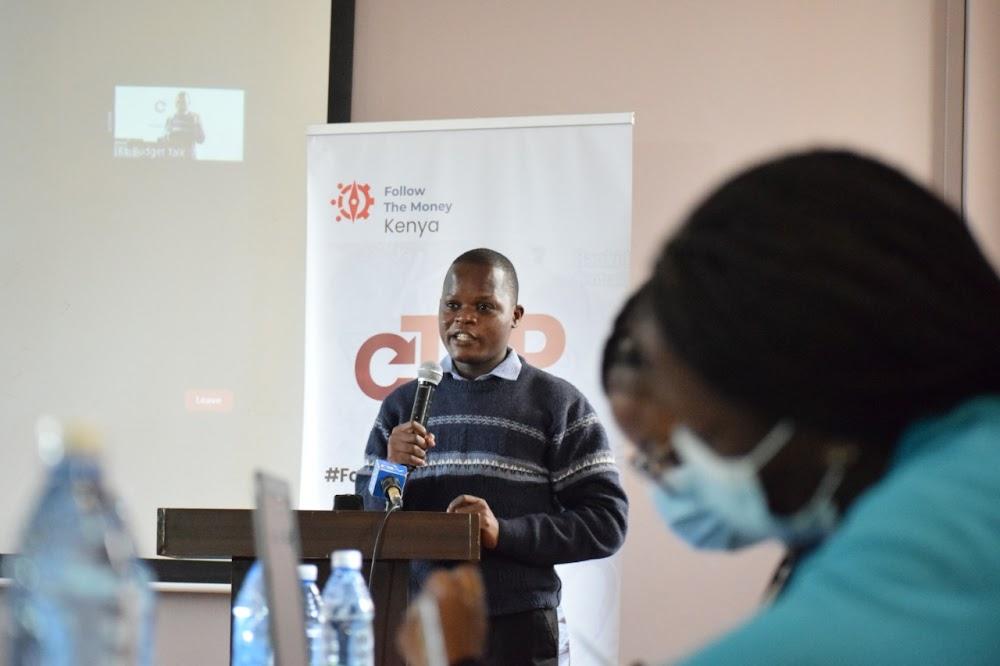Africa-Press – Kenya. The country is losing the substantive amount of revenue that is worth addressing the fiscal deficits concern, through public procurement fraud. This is according to the economic think-tank, the Institute of Economic Affairs which says public procurement fraud is a repeated ritual that has been hurting the country’s progress for over a decade now.
Staring at a fiscal space of Sh862.5 billion in the current 2022/23 financial year, the government could service the gap with sealed corruption loopholes instead of using debt to finance the gap.
The government instead is looking forward to financing the deficit using foreign financing worth Sh280.7 billion and domestic financing of Sh581.7 billion.
According to Ethics and Anti-Corruption Commission (EACC), the country is losing over Sh500 billion through corruption every year. Back in 2021, former president Uhuru Kenyatta noted that the country was losing approximately Sh2 billion daily to corruption.
This was reiterated by ODM party leader Raila Odinga last year when he said the nation is losing Sh700 billion to corruption every year. In the last financial year, Ethics and Anti-Corruption Commission (EACC) said that it averted a loss of Sh6 billion by disrupting corruption networks and recovering stolen assets worth Sh6.3 billion.
Procurement fraud is one major breeding ground for corruption in the country, according to IEA. “It has largely been catalyzed by the slow and frustrated implementation of the automation process and the deliberate non-compliance by the procuring entities,” said Noah Wamalwa, a programme officer at IEA.
“For instance, the requirement by Public Procurement Regulatory Authority for procuring entities to publish contract awards and tender notices on the Public Procurement Information Portal (PPIP) has recorded the least progress since 2015.”
Current data from the portal shows only nine per cent of almost 4,000 procuring entities in the country have so far uploaded their contracts on the portal.
91 per cent have not uploaded their contracts, depicting malicious contracts that are undermining the efforts for the full disclosure of public contracts as envisaged in the Public Procurement and Asset Disposal Act.
Open tendering is provided as the preferred procurement method for all public procurement on the consideration that its the most transparent to achieve value for money.
From the uploaded contracts for the financial year 2020/21, more than three quarters, about 87 per cent of the procurements, were related to the open method of procurement, favoring healthy competition.
However, there is still a significant share of contracts that were done through direct and selective methods which according to IEA, are a recipe for procurement fraud. Direct method constituted 10 per cent while selective accounted for five per cent of the total amount.
According to a recent audit by the Auditor General on the assessment of public entities on compliance with public funds use the majority of the entities that uploaded their contracts between 2018 and 2021 were noted to have adhered to financial rules and regulations except in a few instances with misinterpretation of facts.
They were awarded the qualified opinion, accounting for about 61 per cent on average of all the contracts uploaded between the aforementioned period. The economic institute has termed this as a red flag for procurement fraud.
About 25.6 per cent of the contracts were awarded the unqualified opinion, entities with the most likely to adhere to public procurement rules and regulations.
Those that do not adhere largely to the financial rules and regulations, awarded adverse opinion, were eight per cent, while those awarded disclaimer opinion, ones that exhibit serious and significant misstatements accounted for 3.6 per cent.
IEA further highlighted the concern of most procuring entities not providing the beneficial owners’ information while uploading their contact information to the PPIP portal.
A violation of a requirement it terms crucial in getting the public to know who exactly are being awarded tenders at the expense of taxpayers’ money to foster accountability.
The beneficial ownership act has over the past years been frustrated by the National Assembly, furthering the breeding ground for corruption and loss of revenues due to tax avoidance, evasion and double tax agreements.
Most companies are headed by pseudo-owners and registered with unknown names. Others have bought shares in companies doing business with the government likely to encourage corruption losing the country billions. It could also exacerbate tax avoidance as some of these companies are domiciled in tax haven countries like Mauritius.
For More News And Analysis About Kenya Follow Africa-Press






